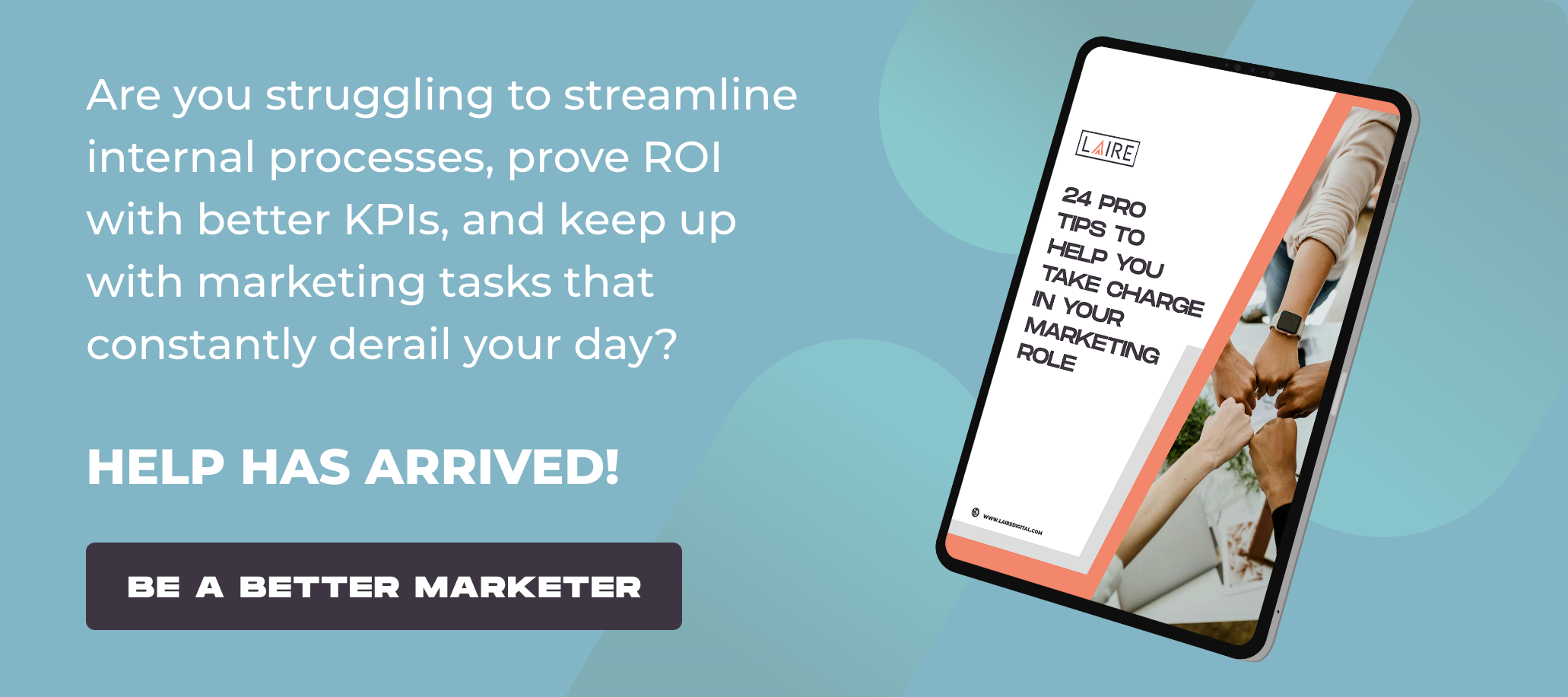If you’re considering a career in the marketing world, becoming an account manager for a marketing agency can be an exciting and rewarding choice that not only offers high-energy excitement but also an outstanding job satisfaction rate. In addition to job satisfaction, this role also holds the potential for a rewarding salary.
In this post, we’ll dive into the role of an account manager within a marketing agency detailing their responsibilities, and the skills required to excel in this position.
What Is an Account Manager in a Marketing Agency?
An account manager in a marketing agency plays a crucial role in fostering strong relationships between a company and its clients. Their primary goal is ensuring client satisfaction with the products, services, and overall customer experience provided by the company
Account managers, whether in marketing, sales, or service, work at different stages of the buyer's journey to build, strengthen, and retain relationships. For marketing account managers, specializing in a particular industry is often part of their job description, enabling them to better understand their clients' needs and requirements.
They are proactive individuals who actively listen to customer needs, measure performance objectively, and manage people and processes to ensure successful outcomes.

Responsibilities of a Marketing Account Manager
An account manager at a marketing agency has a range of responsibilities, including:
- Studying and Capitalizing on Trends: Keeping a close eye on industry trends to make the most of emerging opportunities
- Understanding Target Customers: Identifying the behaviors and needs of the target audience and creating buyer personas
- Mapping the Buyer’s Journey: Developing a plan to guide the target audience through their journey with effective marketing content
- Creating Marketing Plans: Developing comprehensive marketing strategies
- Expanding Brand Reach: Strengthening the reach and depth of the brand
- Segmenting and Personalizing Campaigns: Tailoring campaigns to make them more relevant to specific audience segments
- Content Creation: Designing promotional materials, both physical and digital, as needed
- Proposal and Contract Writing: Preparing proposals and contracts for clients
- Sales and Service Enablement Content: Collaborating on sales and service enablement materials, including chatbots
- Initiating Industry Conversations: Building relationships and demonstrating thought leadership in the industry
- Coordinating With Creative Professionals: Working with writers, graphic designers, social media managers, videographers, editors, and other creatives
- Analyzing Campaign Performance: Measuring campaign performance across various channels and improving cost-effectiveness
- Building Long-Term Relationships: Leveraging key accounts to generate social proof and attract more clients
- Process Evaluation and Automation: Streamlining internal processes, communication, and alignment with sales and service
- Collaboration With Sales and Service: Aligning goals, processes, technologies, and team efforts to provide a consistent customer experience
When marketing, sales, and service teams are in harmony, customers receive a consistent and satisfactory experience throughout their buyer's journey.

Day-to-Day Activities
An agency account manager's day-to-day tasks involve a wide array of activities, including:
- Social media management
- Graphic design
- Trend and data analysis
- Strategy implementation
- Customer satisfaction
- Team management and leadership
This role requires a proactive approach, as account managers are accountable not only for their own work but also for the success of their teams. When things don't go as planned, it's their responsibility to find solutions and make necessary adjustments.
Account managers are also expected to balance selling the product with managing expectations, always striving for continuous improvement.
How to Kickstart Your Journey as a Marketing Account Manager

To embark on the exciting journey of becoming a marketing account manager, the first step usually involves securing a bachelor’s degree in fields such as marketing, communications, business, or related areas.
But formal education is just the beginning — what really matters for your career path is hands-on experience. This can be gained through a marketing internship or other positions like a marketing coordinator.
Now, let’s talk about an interesting twist in the story: You don’t necessarily need a degree to become a marketing account manager. If you’re a self-starter, passionate about the field, and eager to prove your skills through tangible results, this unconventional path is also open to you.
Once you’re part of a marketing agency, your role as a marketing account manager takes center stage. It’s kind of like being the conductor of an orchestra, but instead of music notes, you are setting the tempo for brand awareness and ensuring consistent brand experiences.
The entire team looks to you for direction, and you will be in charge of aligning both in-house employees, contractors, and the client to keep workflows in tune with your goals for success. It’s a role that blends creativity, strategy, and leadership.
Skills Needed
To excel as a marketing account manager, there are skills that you have to have that blend marketing, industry knowledge, soft skills, and technical skills. Some of these essential skills include:
Soft Skills
- Leadership
- Flexibility
- Effective communication
- Interpersonal relationship building
- Empathy
- Respect
- Collaboration
Technical Skills
- Project management
- Research
- Budgeting
- Inbound and outbound marketing
- Marketing automation
- CRM (customer relationship management) systems
- Analytics
- Social media management
- Email marketing
- Search engine optimization (SEO)
- Ad tech
- Video and graphic design
- UX and UI design
- Website development
Aim for having knowledge of the front-end, and where possible, note that backend aspects like programming, cross-platform integration, and app development can be a significant advantage.

Take Your Marketing Career to the Next Level
Being an account manager for a marketing agency is a high-energy and gratifying career. It offers high job satisfaction but also demands a wide range of skills and an extremely proactive approach to all things, especially building client relationships.
Whether you’re just starting your journey to becoming an account manager or are further down the path, the role of marketing account manager offers an exciting opportunity for personal and professional growth within the dynamic world of marketing agencies.
To learn more about how to thrive in marketing — rather than just staying afloat — download our free guide and take charge of your marketing role.


